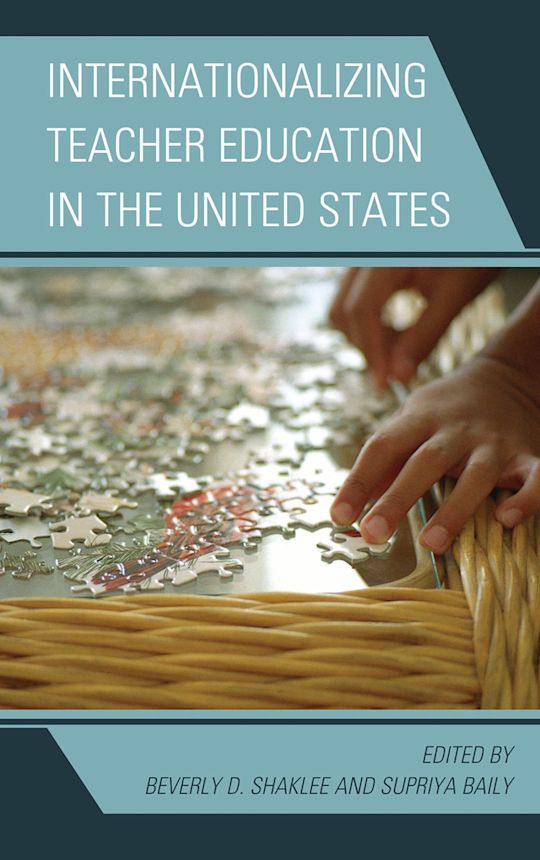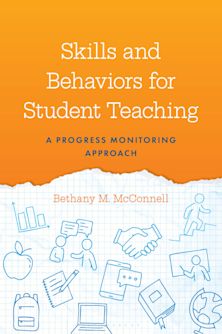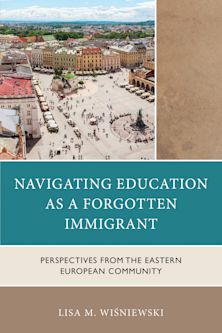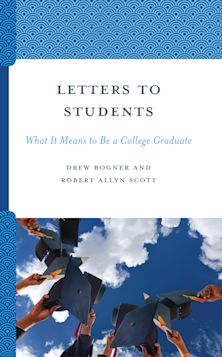- Home
- ACADEMIC
- Education
- Education - Other
- Internationalizing Teacher Education in the United States
Internationalizing Teacher Education in the United States
Internationalizing Teacher Education in the United States
This product is usually dispatched within 1 week
- Delivery and returns info
-
Free CA delivery on orders $40 or over
You must sign in to add this item to your wishlist. Please sign in or create an account
Description
As countries become increasingly interdependent, student populations in the United States are becoming more culturally diverse. These students’ transnational perspectives present significant challenges to teachers, but a disconnect exists between the skills teachers need and those provided to them by colleges of education. As teacher preparation programs continue to cater to historic models of diversity, the programs show a glaring lack of recognition for the recent changes in school and community populations.
Internationalizing Teacher Education in the United Statesexamines the impact of globalization on teacher education in the United States, explains the current barriers to teacher education becoming more internationally minded, and presents possible solutions for teacher education programs to consider. Other books address the multi-national challenges faced by American education in the 21st century, but this book takes it one step further, offering teacher educators practical and theoretical explorations of their vital role in the education of contemporary student populations in the United States.
Table of Contents
Introduction: A Framework for Internationalizing Teacher Preparation
Beverly D. Shaklee and Supriya Baily
Section I. Preparations for Teaching International Populations: What Are the Knowledge, Skills and Attitudes?
Chapter 1: A Comparison of K-12 Multicultural and International Education in the United States
Natasha G. Kolar
Chapter 2: Intra-Intercultural Competence for Teaching and Learning
Kenneth Cushner
Chapter 3: The Critical Role of Language in International Classrooms
Rebecca K. Fox
Chapter 4: One Size Fits All: Balancing Internationalization and Standardization of the U.S. Education System
Laura C. Engel and Kate Olden
Chapter 5: Global Perspectives on the Internationalization of Teacher Education: Through an Australian Lens
Libby Tudball
Section II. Areas of Complexity and Confluence: Questions Still to Be Answered in U.S. Schools and Teacher Education
Chapter 6: Engaging Teachers in Building Relationships with International Families Monimalika Day
Chapter 7: Redefining Vulnerability in American Schools: Reaching and Teaching Students after International Crises
Supriya Baily
Chapter 8: Understanding Secondary Models for Advanced Programs in the United States
Kimberley Daly
Chapter 9: STEM Disciplines and World Languages: Influences from an International Teacher Exchange
Wendy M. Frazier, Rebecca K. Fox, and Margret A. Hjalmarson.
Chapter 10: Pedagogical Diversity and the Need for Contextually Responsive Teacher Education in the United States
Rachel Grant and Maryam Salahshoor
Chapter 11: Expanding Horizons through Technology for Teachers and Students
Debra Sprague
Section III. Concluding Thoughts: Developing Opportunities to Internationalize Teacher Education
Beverly D. Shaklee
Product details
| Published | Mar 08 2012 |
|---|---|
| Format | Hardback |
| Edition | 1st |
| Extent | 268 |
| ISBN | 9781442212480 |
| Imprint | Rowman & Littlefield Publishers |
| Dimensions | 235 x 161 mm |
| Publisher | Bloomsbury Publishing |
About the contributors
Reviews
-
This collection of chapters from a range of those involved in the theory and practice of teacher education is both welcome and timely. The impact of internationalization on the modalities of professional development for teachers in the USA is explored from a range of standpoints by an authoritative group of contributors, ably crafted by the co-editors. It will be of interest to a much wider community of practitioners and researchers than those of North America, for the issues that are raised are those which are of concern and importance on a global scale.
J. J. Thompson, University of Bath
-
The authors lay a coherent and focused argument for convincing teacher educators of the merits of internationalization.
Jane Applegate, University of South Florida
-
As our world becomes increasingly interdependent, there is a growing need for education systems to prepare young people for life in a world of greater intercultural awareness and interaction. Shaklee and Baily's welcome book, with its contributions from a range of experienced researchers and teacher educators, addresses the crucial issue of how teachers may be prepared for the central role they have to play in the internationalising of education, and makes a valuable contribution to the current debate which should be welcomed by teachers, teacher educators and researchers alike.
Mary Hayden, University of Bath; director of the Centre for the Study of Education in an International Context
-
One of the most difficult aspects of internationalizing teacher education in the U.S. is to maintain a focus on domestic settings – especially urban schools and students. This book admirably addresses that often-overlooked issue by providing repeated guidance for teacher educators. The alignment between international and domestic is stressed in a variety of ways – through a comparison of international and multicultural education, a focus on cultural competence and linguistic awareness, making connections with international families, and balancing internationalization and standardization. The text also presents invaluable models and ideas in related areas: students with interrupted schooling, preparation of STEM teachers, and the use of technology, among others. Further, it does not only rely on a U.S.- centric focus, but offers global perspectives on the internationalizing of teacher education.
This is an excellent volume that is both informative and enjoyable to read. It will be welcomed by the teacher education community, and will enjoy a long life among students, practitioners, researchers and policymakers.Jack Levy, University of Massachusetts Boston



































